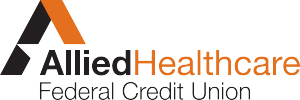
Healthcare Workers are Being Targeted for Identity Theft
Every two seconds, there is a new identity theft victim. That’s 8x more than the occurrence of a car accident.
Identity theft is often the result of a data breach. In just the first few weeks of 2020, there were multiple breaches announced, including one from Microsoft, which exposed 250 million customer records. Along with this, comes even more alarming statistics that pertain to the healthcare industry. The number of ransomware incidents reported by healthcare policyholders to Beazley, a data breach insurance solution, increased 70% from Q2 to Q3 of 2019. Medical records can fetch a much higher price on the dark web than personal data, which is part of what makes healthcare such a target.
While the stats, trends and recent breaches are a reminder of the times we’re living in, the good news is that there are steps that you can take to help protect yourself from becoming a victim.
-
Secure your Social Security number (SSN). Don’t carry your Social Security card in your wallet. Only give out your SSN when necessary and to those you fully trust.
-
Take advantage of free credit reports. You are allowed one free report each year from each of the three national credit bureaus: Equifax, Experian, and Trans Union. You can request your credit report at http://www.annualcreditreport.com/.
-
Update sharing and firewall settings when you’re on a public Wi-Fi network.
-
Install firewalls and virus-detection software on your home computer.
-
Freeze your credit files with Equifax, Experian, Innovis, TransUnion, and the National Consumer Telecommunications and Utilities Exchange. Credit freezes prevent someone from applying for and getting approval for a credit account or utility services in your name. Note: You may need to unfreeze these credit files for a credit review of a new loan.
AHFCU offers a full suite of complimentary ID theft services (monitoring, protection and recovery) with our Value and Dividend checking accounts to maximize the protection available to our members. Click here to learn more about our checking accounts with identity theft protection.



